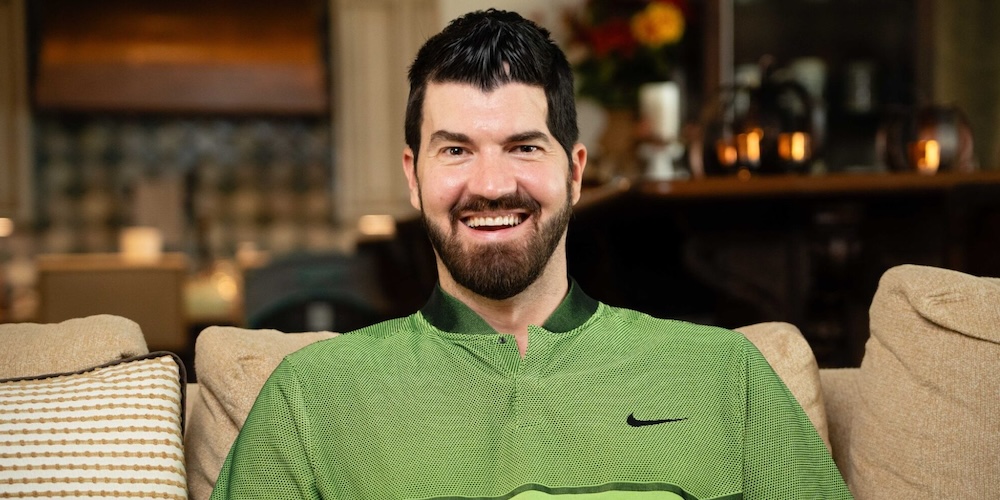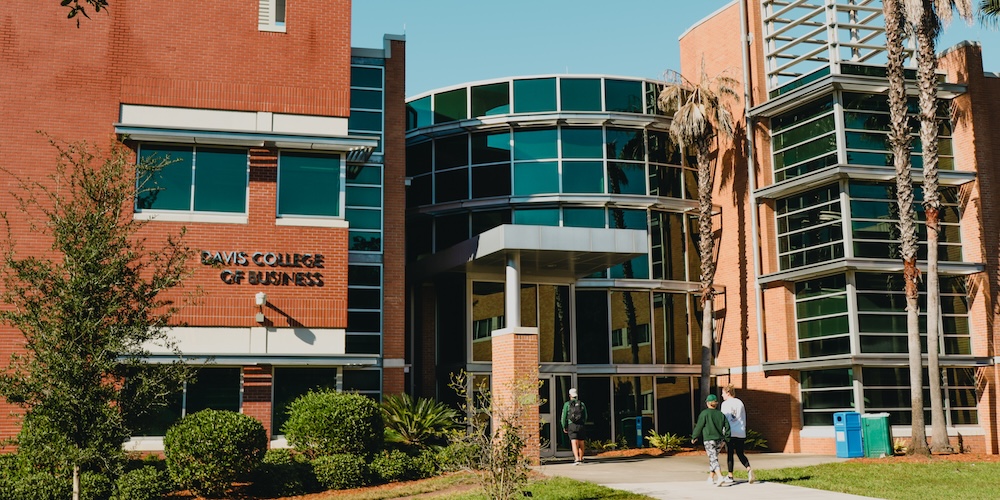Since the onset of the pandemic, Jacksonville University has remained committed to the health and safety of its students, faculty, and staff. Along with the rest of the world, the University has incorporated numerous COVID-related mitigation efforts.
Many classes are being offered in-person, in hybrid format or outdoors when possible. Cutting-edge health technology has been installed. Certified contact tracers have been activated. On-campus dining and other student experiences have been redesigned. Flexible work and learning environments have been expanded. Air purification units have been employed.
The list goes on, but one mitigation effort is especially important as students return to campus. This fall, Jacksonville University is offering several on-campus vaccination clinics for students, faculty and staff.
Jamie Burket, assistant dean of students, has been instrumental in offering and promoting the clinics on campus, “the more individuals we have on campus fully vaccinated, the better chance we have of limiting the spread of COVID-19 within our community.”
The on-campus vaccination clinics are available by appointment or as walk-in visits. Two of the clinics coincided with the start of fall semester, and future clinics are already being scheduled. Once vaccinated, students, faculty and staff are encouraged to report their vaccination records to the university through the appropriate online portal. The University has even provided students with step-by-step instructions.
The convenience of on-campus vaccination clinics is reflective of the University’s positive approach to encourage 100% of its population to be vaccinated. Recognizing that vaccine hesitancy is one of the last major hurdles in the fight against COVID-19, Jacksonville University is also doing its part to dispel some of the more common myths associated with the vaccines.
Following are just a few of the myths that have been tackled by the University’s COVID-19 response team.
Vaccine Myths & Facts
Myth #1: The COVID-19 vaccine is not safe because it was rapidly developed and tested.
Fact: All three vaccines are safe, with no evidence of serious or long-term side effects.
Scientists were given access to unprecedented financial resources so that they could
focus all their energy on promptly producing a safe and effective vaccine against
COVID-19.
Moderna and Pfizer developed mRNA vaccines. The technology behind this kind of vaccine is decades old and was used extensively in cancer research prior to this. The Johnson & Johnson vaccine uses a weakened adenovirus, which has been studied extensively for other vaccines. All three went through clinical trials with the same rigor applied to all vaccine trials, and multiple independent advisory panels reviewed and approved the results.
Myth #2: We don’t know what the long-term side effects of the vaccine are.
Fact: In the history of all vaccines, including the COVID-19 vaccine, the most serious
side effects have shown up in the first six weeks after vaccination.
The most common side effects associated with any of the COVID-19 vaccines are pain,
redness and swelling at the site of the injection; and tiredness, headache, muscle
pain, chills, fever and nausea. These side effects typically go away within a few
days. Some people experience no side effects at all.
Myth #3: It’s safer to wait for the FDA to grant full authorization than it is to get the
vaccine under an emergency use authorization.
Fact: Full FDA approval is largely based on how effective a vaccine is over a longer period
of time, not how safe the vaccine is. Most of the time, the FDA likes to see that
a vaccine offers protection for a year or two before granting full approval.
So what does the emergency use authorization mean? It means that the FDA has determined
that the vaccine may be effective in preventing a serious or life-threatening condition,
and that the vaccine’s known and potential benefits can outweigh its known and potential
risks.
All three vaccines demonstrate over an 85% effectiveness in preventing COVID-19 illness. At this time, Pfizer and Moderna have both applied for full FDA approval based on their ongoing research into their vaccines’ long-term effectiveness. The review process is still ongoing.
Myth #4: I’ve already had COVID. I don’t need to be vaccinated.
Fact: The vaccine offers stronger, longer-lasting immunity than the virus does.
This is true of most vaccines, including things like human papillomavirus and tetanus.
Immunity created by contracting the virus is often unpredictable, and you will be
safer getting fully vaccinated.
Information for the above was supplied by Jacksonville University’s COVID-19 Response Team from multiple sources, including the CDC, Mayo Clinic and the American Academy of Family Physicians. For a complete list of sources and for more myths and facts about the vaccine, visit Jacksonville University’s Ready to Return page.

